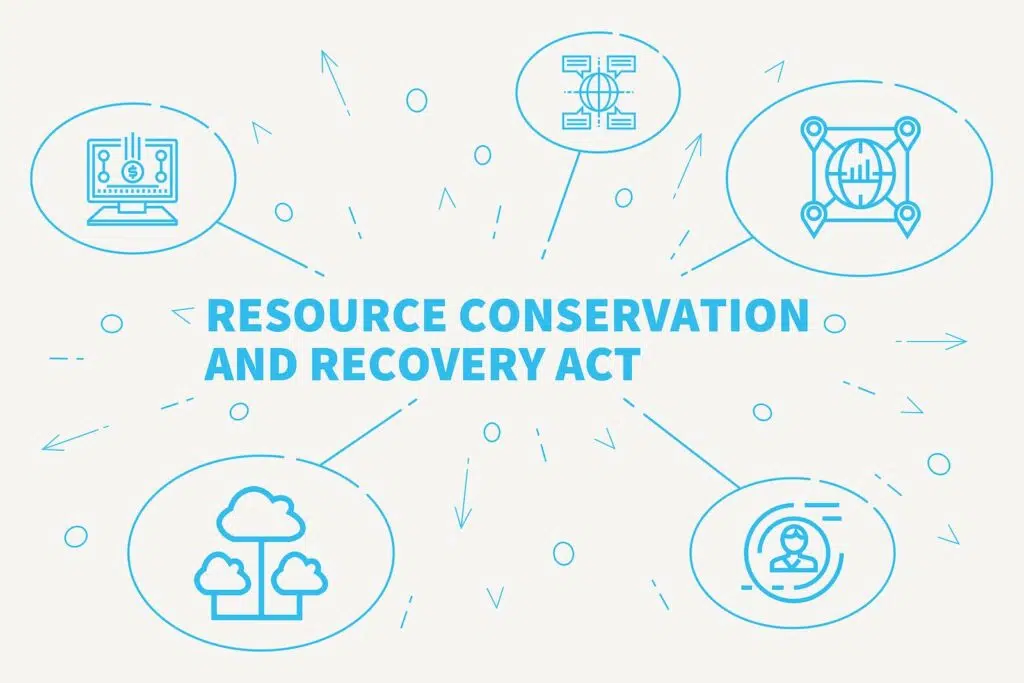In the United States and Canada, generators of waste must follow procedures laid out by their governments. These standards typically aim to control how much waste a generator can dispose of, they label the generator, create, and standardize methods of disposal, and outline controls that a generator must follow. The U.S., for example, has the Resource Conservation and Recovery Act (RCRA) of 1976. Likewise, Canada has the Resource Recovery and Circular Economy Act (RRCA), which was developed in 2016. Both of which directly impact how all PaperWorks’ facilities operate.

Known as RCRA (pronounced “Re-cra, Reckra”), in the United States this act gives structure and sets a standard for how generators handle and dispose of waste. Prior to the act, there were several attempts to address the waste problem, including the Solid Waste Disposal Act and the Resource Recovery Act. In 1976, the RCRA was developed to clearly outline regulations for defining waste, how much can be produced based on what kind of generator the manufacturing facility is categorized as, and how waste can be stored and disposed of. The act also implements standards for different forms of training and contingency planning. Since it was first instituted, additions have been made to the act, like rules regarding solvent contaminated items (2015), updated generator standards (2018), classifying aerosols as universal waste (2019), and more, to continuously improve waste disposal standards.
Similarly, our PaperWorks’ facilities in Ontario, Canada, follow the Resource Recovery and Circular Economy Act (RRCA). This act was developed in 2016 and shares core principals to the RCRA. That is, the RRCA focuses on using recycled and/or recyclable material, managing waste from cradle-to-grave, and decreasing the use of virgin materials. Latent functions of the RRCA Act also include protecting the environment and human welfare, limiting emissions and the need for disposal, and promotion of recovery education. A large function of the act places accountability on generators of products that would subsequently create or become waste as a biproduct. It holds these generators accountable by registering their product, reducing waste from that product, maintaining, and managing a collection program for that product, promoting resource recovery education, and record keeping.
In comparison, the Resource Conservation and Recovery Act holds generators accountable by giving them a status. A generator can be categorized by waste quantity produced: very small, small, or large. A very small quantity generator can dispose of 220 lbs. of non-acute hazardous waste and 2.2 lbs. of acute hazardous waste per month, a small quantity generator can dispose of 221 lbs. – 2200 lbs. of non-acute hazardous waste and 2.2 lbs. of acute hazardous waste per month, and a large quantity generator can dispose of >2200 lbs. of non-acute hazardous waste and >2.2 lbs. of acute hazardous waste per month. According to this scale, all PaperWorks facilities in the United States are categorized as very small quantity generators. Each facility produces less than 220 lbs. of hazardous waste a month! This means that there is little to no waste in the process.
In sum, the Resource Conservation and Recovery Act and the Resource Recovery and Circular Economy Act were developed to regulate waste in ways that help the environment, people, and hold generators accountable. At PaperWorks, all facilities follow their respected regulations. At the Wabash Mill, for example, there are programs in place for universal waste, like batteries. These programs define how waste is stored, how long it can be stored, and where it must go. PaperWorks strives for compliance in all forms, including environmental, and never sacrifices. To learn more about PaperWorks’ approach to sustainability, visit onepaperworks.com/sustainability.





